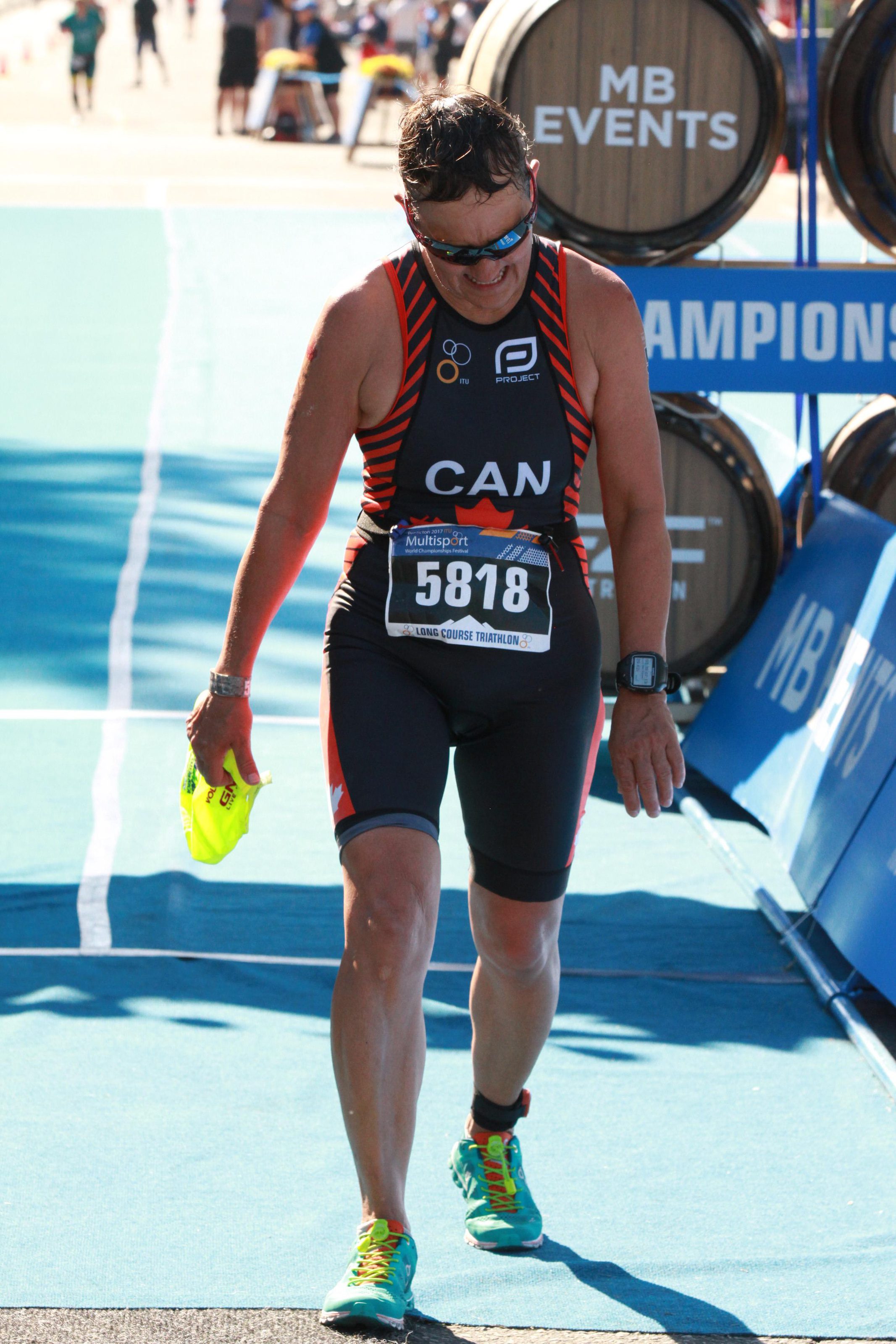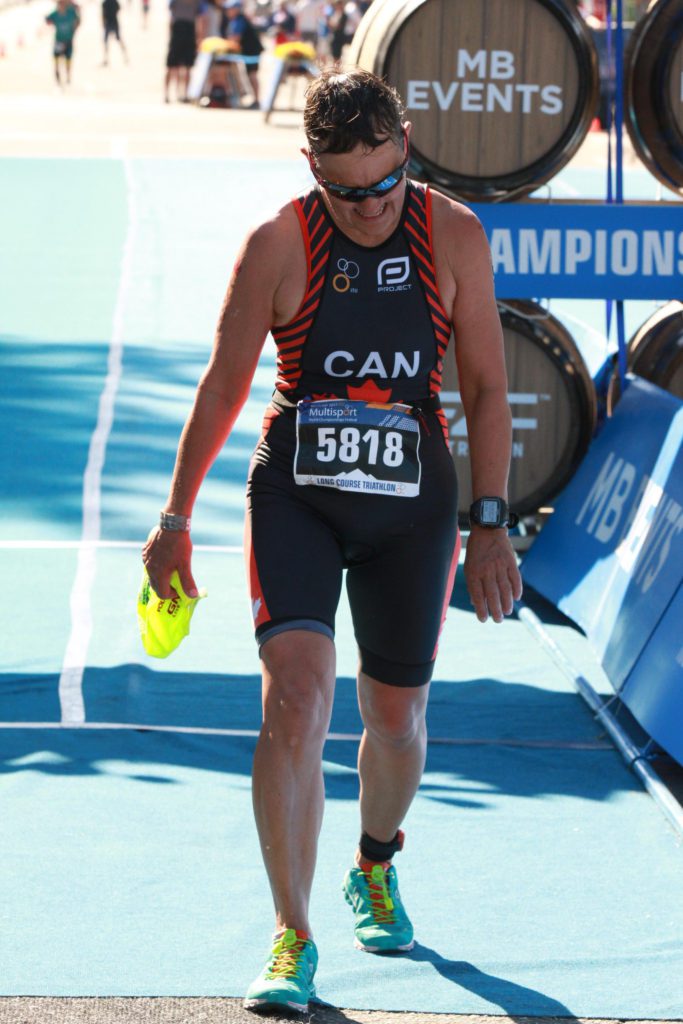Triathlon training is a big ask in November
Motivation is low at this time of year, but that's the perfect reason to get back to doing the things you love in and outside of triathlon.


— By Loreen Pindera
Unless you were able to sneak off to the Baja Peninsula for the Ironman 70.3 Los Cabos this month, chances are your next race is so far away that it’s hard to wrap your head around just why you should get up to go swimming when it’s still pitch dark at 5:30 a.m. If the snow hasn’t yet fallen where you are, the trees surely are bare, the wind that whips in your face is cold, and quite possibly the only biking you’re doing anymore is on your trainer in your pain cave. Sure, you’ve got your virtual friends to test yourself against on Zwift or whatever software you’re using. But those long, sweaty summer group rides with your cycling buddies, the popsicle breaks and the stops for selfies at the summit after a big climb – in short, the stuff that makes triathlon training fun – all feels like a distant memory.
For most of us age-groupers, this is the offseason. It can be hard to find your motivation to train. You can’t even get too worried about an extra kilo or two, so pass the pumpkin pie. We’re already piling on all those extra clothes, who is going to notice?
I have been thinking a lot about motivation lately.
Last November, I had a goal: I’d qualified for the ITU Long Distance World Championships in Penticton and, darn it, I was going to be ready. The race wasn’t until late August – still nine months away – but it would be the longest race I’d signed up for in six years. Since the Ironman Lake Placid in 2011, I’d moved up an age group, struggled with recurrent shoulder pain that hampered my swimming and, year after year, slowed down as a runner.
So I made a plan: I would fix the shoulder (and the weak butt, the unengaged lats and other feeble body parts which a movement assessment showed were letting me down) by incorporating strength and conditioning work into my exercise regime and I’d seriously commit to the running speedwork that I avoided.
I arrived in Penticton in August feeling ready and, until about halfway through the 30-kilometre run, I was having the race of my life. That’s when the 31 C heat started to get to me and, for the next 5 or 6 km, I struggled to find a pace I could manage. And then I bonked. I was running and then I wasn’t. I had no fight in me. I kept moving forward but, over the last 8 km, a dozen women in my age group shuffled past me at what looked like a Sunday jog pace and I couldn’t muster an extra ounce of effort to take them on.
When I finally crossed the line, I was more than 45 minutes behind my target time and,rather than feel elation at having finished the race, I felt devastated. I felt as if I’d let myself down – and more than that, I’d let down the people who had cheered me on and helped me get ready. Two weeks later, I was still asking myself, “What do I do this for, anyway?”
Usher in Malcolm Balk.
Balk is a Montreal-based running coach. Now in his sixties, he is the reigning national cross-country champion in his age group, having bested the field in Kingston, Ont., lastyear in a time of 31:37 for 8 km. He gave me race my interval-training drills and, as it turns out, was just the guy to turn to to snap me out of my negative thinking after Penticton.
He concluded the most likely reason for my bonking was not lack of mileage or speedwork in my pre-race regime – the conclusion I’d come to, for which I’d been kicking myself around the block for weeks – but heat exhaustion.
“You showed up at the race uninjured,” he pointed out. “At your age, injured or sick from overtraining is the norm.”
Montreal had had a cool, rainy summer and, arriving in Penticton just four days before the race, I hadn’t given my body much of a chance to acclimatize to the dry heat, he said.
“Maybe you should have gone to Arizona to train in the heat, like the pros do,” said Balk, only half joking. “Think of Jim Ryun, once the greatest miler in the world. He goes to the Mexico City Olympics, expected to win gold. But he can’t cope with the altitude.”
Ryun lost to Kip Keino, a Kenyan who trained in the mountains.
“Circumstances worked against him, factors he couldn’t deal with,” said Balk. “It’s a bit like people who climb Everest, they don’t know until they get there just how their body will cope with the thin air.”
Balk recounted his own Everest: His effort, over several attempts in his late fifties, to complete a half-marathon in under 1:20.
“In 2011 in Picton, I was ready to do it. I woke up at three in the morning the day of the race, and I could hear the wind howling! Sure enough, during the race, the wind was in our face for 4 km. I ended up finishing third overall in the that race, but I missed setting a record. I ran 1:23.”
“I did my prep. I did what I could. But I couldn’t control the weather.”
“If you judge the whole experience by the final result, well, unless you get a gold medal, you are always going to be disappointed,” Balk concluded. “If you judge it by the fact that you followed a training plan, you got to the starting line, you completed two-thirds of the race in good form, that’s a pretty good result. You succeeded on many levels.”
Balk’s advice to me through the early autumn was to take some time off – to stay active, not to “go couch-potato,” but to switch off the competition side of my brain and just do activities I enjoyed: go for hikes, easy rides, enjoy the scenery and have fun in the pool with my fellow masters swimmers, most of them wickedly fast and half my age.
He had me write down a list of what was good about my last year of training, and it turned out that was easy: I had stuck to the strength training plan, and it really paid off. The niggling pain in my shoulder was all but gone. My core was stronger than ever. After Penticton, I felt physically fine and recovered in no time. I practically jogged from winery to winery the day after the race. Within a couple of weeks, I was back in the pool, not counting my laps, but enjoying how good it feels to start my workday already having put in a solid swim. It all bodes well for starting 2018 uninjured, fit and mentally fresh.
